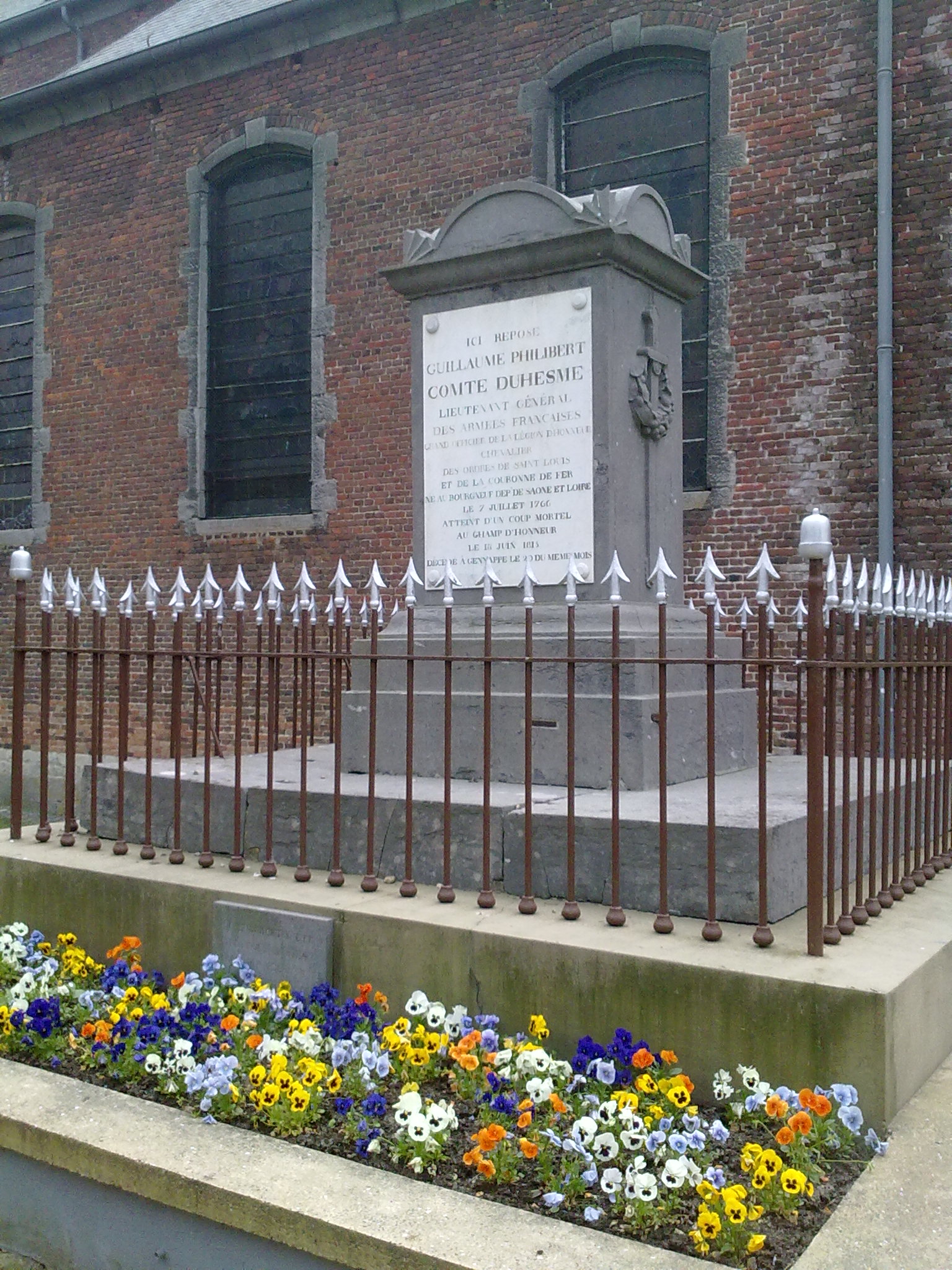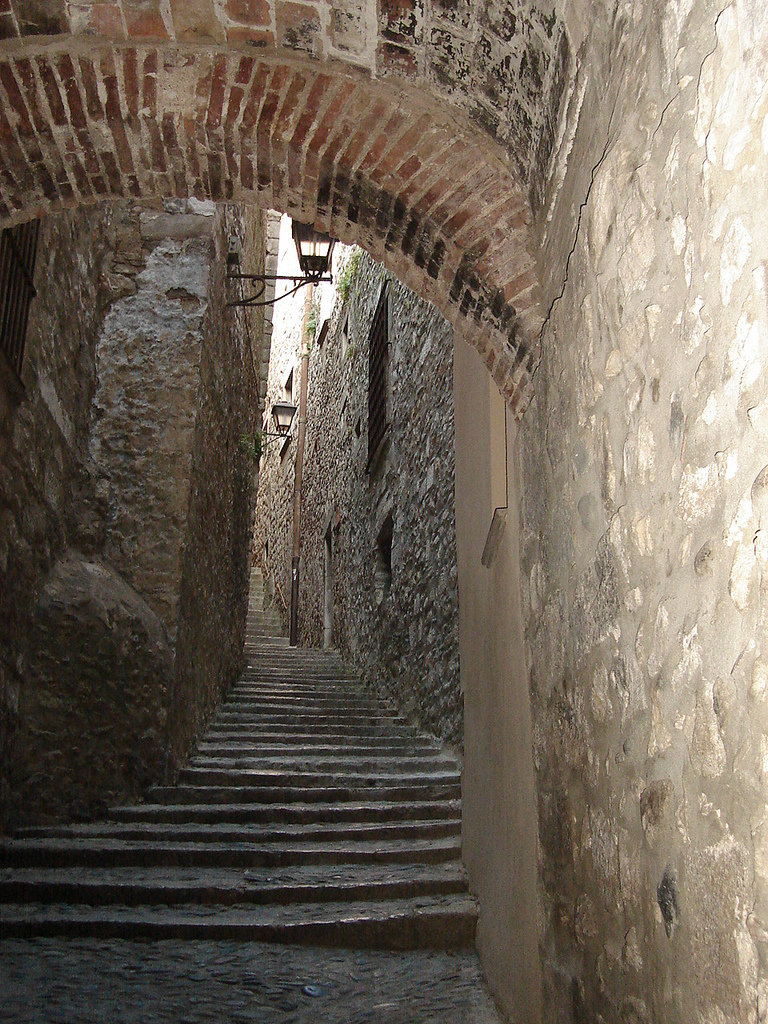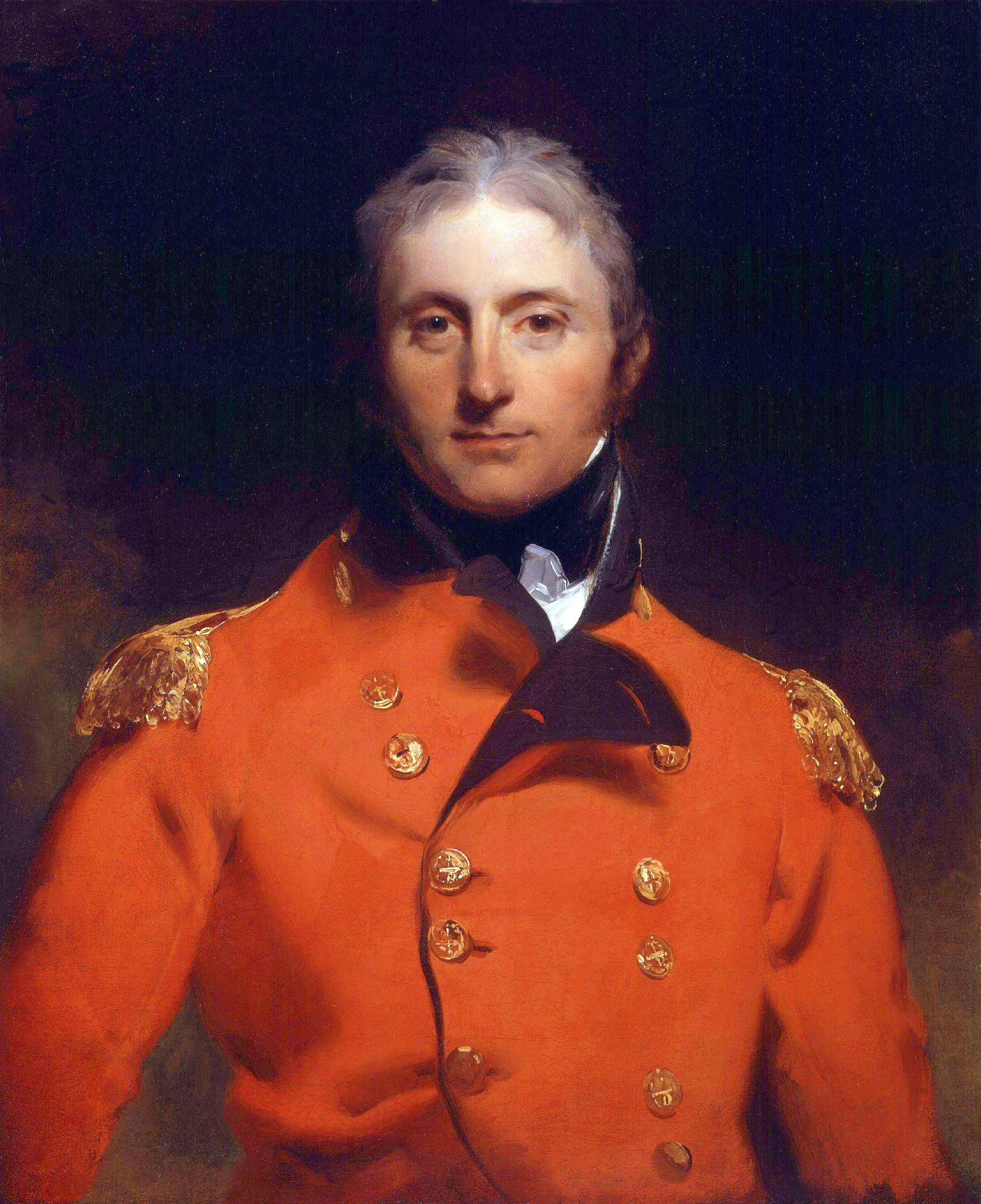|
Siege Of Roses (1808)
The siege of Roses or Siege of Rosas from 7 November to 5 December 1808 saw an Imperial French corps led by Laurent Gouvion Saint-Cyr invest a Catalan and Spanish garrison commanded by Peter O'Daly. After a siege lasting a month in which the haven and town of Roses was captured and the nearby Trinity Castle invested by over 13,000 French and Italian infantry, artillery and cavalry with heavy siege trains on the hills above, the Citadel was surrendered to the Napoleonic forces. Roses (Rosas) is located northeast of Girona, Catalonia, Spain. The action occurred during the Peninsular War, part of the Napoleonic Wars. In the summer and fall of 1808, an Imperial French corps under Guillaume Philibert Duhesme was isolated in Barcelona by a 24,000-man Spanish army led by Juan Miguel de Vives y Feliu. With 23,000 men, Gouvion Saint-Cyr moved from the French border to relieve Duhesme's troops. The first obstacle to Gouvion Saint-Cyr's mission was the haven of Roses defended by a la ... [...More Info...] [...Related Items...] OR: [Wikipedia] [Google] [Baidu] |
Peninsular War
The Peninsular War (1807–1814) was the military conflict fought in the Iberian Peninsula by Spain, Portugal, and the United Kingdom against the invading and occupying forces of the First French Empire during the Napoleonic Wars. In Spain, it is considered to overlap with the Spanish War of Independence. The war started when the French and Spanish armies invaded and occupied Portugal in 1807 by transiting through Spain, and it escalated in 1808 after Napoleonic France occupied Spain, which had been its ally. Napoleon Bonaparte forced the abdications of Ferdinand VII and his father Charles IV and then installed his brother Joseph Bonaparte on the Spanish throne and promulgated the Bayonne Constitution. Most Spaniards rejected French rule and fought a bloody war to oust them. The war on the peninsula lasted until the Sixth Coalition defeated Napoleon in 1814, and is regarded as one of the first wars of national liberation. It is also significant for the emergence of larg ... [...More Info...] [...Related Items...] OR: [Wikipedia] [Google] [Baidu] |
Battle Of Cardedeu
The Battle of Cardadeu on 16 December 1808 saw an Imperial French corps led by Laurent Gouvion Saint-Cyr assault a Spanish force commanded by Juan Miguel de Vives y Feliu and Theodor von Reding. Saint-Cyr won the engagement by forming most of his troops into gigantic attack columns and smashing through the Spanish lines. Cardedeu is located northeast of Barcelona, Spain. The action occurred during the Peninsular War, part of the Napoleonic Wars. By the fall of 1808, a French corps under Guillaume Philibert Duhesme was besieged in Barcelona by a 24,000-man Spanish army led by Vives. With 23,000 Franco-Italian soldiers, Gouvion Saint-Cyr marched from France to relieve Duhesme's troops. First Saint-Cyr undertook the successful Siege of Roses. Confronted by the fortress of Girona, which had resisted two earlier attacks, the French general resorted to a risky strategy. Leaving his artillery and most of his supplies behind, he avoided Girona by marching 16,500 men though the mo ... [...More Info...] [...Related Items...] OR: [Wikipedia] [Google] [Baidu] |
Militia
A militia () is generally an army or some other fighting organization of non-professional soldiers, citizens of a country, or subjects of a state, who may perform military service during a time of need, as opposed to a professional force of regular, full-time military personnel; or, historically, to members of a warrior-nobility class (e.g. knights or samurai). Generally unable to hold ground against regular forces, militias commonly support regular troops by skirmishing, holding fortifications, or conducting irregular warfare, instead of undertaking offensive campaigns by themselves. Local civilian laws often limit militias to serve only in their home region, and to serve only for a limited time; this further reduces their use in long military campaigns. Beginning in the late 20th century, some militias (in particular officially recognized and sanctioned militias of a government) act as professional forces, while still being "part-time" or "on-call" organizations. For instan ... [...More Info...] [...Related Items...] OR: [Wikipedia] [Google] [Baidu] |
Juan Miguel De Vives Y Feliu
Juan Miguel de Vives y Feliu or Joan Miquel Vives i Feliu (died 24 April 1809) was a Spanish general who commanded a division during the French Revolutionary Wars and briefly led an army in the Napoleonic Wars. He was described as a native of Girona. In 1794 he capably led a division against the French in the War of the Pyrenees. He led his division at the battles of Boulou and the Black Mountain in the eastern Pyrenees. In 1796 he was posted to Cartagena and in 1799 he became Captain General of Mallorca. Soon after the outbreak of the Peninsular War in 1808, the Spanish Junta named him Captain General of Catalonia. In the summer and fall of 1808, de Vives was in charge of the blockade of Barcelona and its French Imperial garrison led by Guillaume Philibert Duhesme. He failed to take vigorous action against Barcelona and was defeated by a second column of French troops under Laurent Gouvion Saint-Cyr at the battles of Cardadeu and Molins de Rey in December. Replaced in army ... [...More Info...] [...Related Items...] OR: [Wikipedia] [Google] [Baidu] |
Barcelona
Barcelona ( , , ) is a city on the coast of northeastern Spain. It is the capital and largest city of the autonomous community of Catalonia, as well as the second most populous municipality of Spain. With a population of 1.6 million within city limits,Barcelona: Población por municipios y sexo – Instituto Nacional de Estadística. (National Statistics Institute) its urban area extends to numerous neighbouring municipalities within the and is home to around 4.8 million people, making it the [...More Info...] [...Related Items...] OR: [Wikipedia] [Google] [Baidu] |
Guillaume Philibert Duhesme
Guillaume Philibert, 1st Count Duhesme (7 July 1766 in Mercurey (formerly ''Bourgneuf''), Burgundy – 20 June 1815 near Waterloo) was a French general during the Napoleonic Wars. Revolution Duhesme studied law and in 1792 was made colonel of a free corps by Charles-François Dumouriez, which he raised by his own means. As commander at Roermond, he held the post of Herstal, an important passage to the Netherlands, and burned the bridge of Leau after the defeat at Neerwinden on 18 March 1793. He then crossed the Schelde and at the Battle of Villeneuve rallied the fleeing infantry (6 July), for which action he was made brigadier general. He also contributed greatly to the victory at the Fleurus on 26 July 1794 and besieged Maastricht under Kléber, and was promoted to general of division. He fought in the Vendée in 1795, and later at the Rhine, where he forced the passage over the river on 20 April 1797 below Kehl. In 1798 he was given a command in Italy under Championnet, p ... [...More Info...] [...Related Items...] OR: [Wikipedia] [Google] [Baidu] |
Napoleonic Wars
The Napoleonic Wars (1803–1815) were a series of major global conflicts pitting the French Empire and its allies, led by Napoleon I, against a fluctuating array of European states formed into various coalitions. It produced a period of French domination over most of continental Europe. The wars stemmed from the unresolved disputes associated with the French Revolution and the French Revolutionary Wars consisting of the War of the First Coalition (1792–1797) and the War of the Second Coalition (1798–1802). The Napoleonic Wars are often described as five conflicts, each termed after the coalition that fought Napoleon: the Third Coalition (1803–1806), the Fourth (1806–1807), the Fifth (1809), the Sixth (1813–1814), and the Seventh (1815) plus the Peninsular War (1807–1814) and the French invasion of Russia (1812). Napoleon, upon ascending to First Consul of France in 1799, had inherited a republic in chaos; he subsequently created a state with stable financ ... [...More Info...] [...Related Items...] OR: [Wikipedia] [Google] [Baidu] |
Girona
Girona (officially and in Catalan language, Catalan , Spanish: ''Gerona'' ) is a city in northern Catalonia, Spain, at the confluence of the Ter River, Ter, Onyar, Galligants, and Güell rivers. The city had an official population of 103,369 in 2020. Girona is the capital of the province of Girona, province of the same name and also capital of the ''Comarques of Catalonia, comarca'' of the Gironès and the vegueria of Girona. Since much of the old quarter of this ancient city has been preserved, Girona is a popular destination for tourists, and film productions have used it as a filming location (e.g. ''Game of Thrones''). The city is located northeast of Barcelona. History The first historical inhabitants in the region were Iberians; Girona is the ancient Gerunda, a city of the Ausetani. Later, the Ancient Rome, Romans built a citadel there, which was given the name of ''Gerunda''. The Visigoths ruled in Girona until it was conquered by the Moors in 715. Charlemagne reconquere ... [...More Info...] [...Related Items...] OR: [Wikipedia] [Google] [Baidu] |
Battle Of Corunna
The Battle of Corunna (or ''A Coruña'', ''La Corunna'', ''La Coruña'' or ''La Corogne''), in Spain known as Battle of Elviña, took place on 16 January 1809, when a French corps under Marshal of the Empire Jean de Dieu Soult attacked a British army under Lieutenant-General Sir John Moore. The battle took place amidst the Peninsular War, which was a part of the wider Napoleonic Wars. It was a result of a French campaign, led by Napoleon, which had defeated the Spanish armies and caused the British army to withdraw to the coast following an unsuccessful attempt by Moore to attack Soult's corps and divert the French army. Doggedly pursued by the French under Soult, the British made a retreat across northern Spain while their rearguard fought off repeated French attacks. Both armies suffered extremely from the harsh winter conditions. Much of the British army, excluding the elite Light Brigade under Robert Craufurd, suffered from a loss of order and discipline during the retrea ... [...More Info...] [...Related Items...] OR: [Wikipedia] [Google] [Baidu] |
Battle Of Cacabelos
The Battle of Cacabelos was a minor battle of the Peninsular War The Peninsular War (1807–1814) was the military conflict fought in the Iberian Peninsula by Spain, Portugal, and the United Kingdom against the invading and occupying forces of the First French Empire during the Napoleonic Wars. In Spain ... that took place on 3 January 1809, at the bridge just outside the village of Cacabelos, Province of León, Spain, as British forces under John Moore (British Army officer), Sir John Moore making their retreat to A Coruña. In the ensuing engagement with French Marshal Nicolas Soult's advance guard, British units were overwhelmed and forced to mount a hurried withdrawal across the bridge. Ultimately, however, the French forces failed to press their advance further due to heavy losses including the death of French Brigadier General Auguste François-Marie de Colbert-Chabanais, Colbert-Chabanais. The resulting delay allowed Moore's forces to continue their retreat whil ... [...More Info...] [...Related Items...] OR: [Wikipedia] [Google] [Baidu] |
Battle Of Mansilla
In the Battle of Mansilla or Battle of Mansilla de las Mulas on 30 December 1808 an Imperial French corps led by Nicolas Soult caught up with a Spanish corps commanded by Pedro Caro, 3rd Marquis of la Romana. Soult's cavalry under Jean Baptiste Marie Franceschi-Delonne overran la Romana's rear guard led by General Martinengo. Mansilla de las Mulas is a town located southeast of León, Spain. The combat occurred during the Peninsular War, part of the Napoleonic Wars. La Romana's Spanish corps cooperated with Sir John Moore's British army in its advance into northern Spain and in its subsequent retreat to the northwest. At Mansilla de las Mulas on the Esla River, the Spanish commander posted Martinengo's division to hold off Soult's pursuing French corps. The rear guard commander unwisely drew up his soldiers with the bridge at their backs. Franceschi's cavalry charged and cut the Spanish formation to pieces. Half of the rear guard were trapped against the river and forc ... [...More Info...] [...Related Items...] OR: [Wikipedia] [Google] [Baidu] |
Battle Of Benavente
The Battle of Benavente (29 December 1808) was a cavalry clash in which the British cavalry of Lord Paget defeated the elite ''Chasseurs à cheval'' of the French Imperial Guard during the Corunna Campaign of the Peninsular War. The French chasseurs were broken and forced into the River Esla; their commanding officer, General Lefebvre-Desnouettes, was captured. The action was the first major incident in the British army's harrowing retreat to the coast and ultimate evacuation by sea. Background The Corunna campaign started with the Battle of Cardedeu. Sir John Moore led a British army into the heart of northwestern Spain with the aim of aiding the Spanish in their struggle against the French occupation. However, Napoleon had entered Spain at the head of a large army in order to retrieve French fortunes. This, together with the fall of Madrid to the French, made the position of the British army untenable. The British army had begun their retreat and were being pursued by ... [...More Info...] [...Related Items...] OR: [Wikipedia] [Google] [Baidu] |






